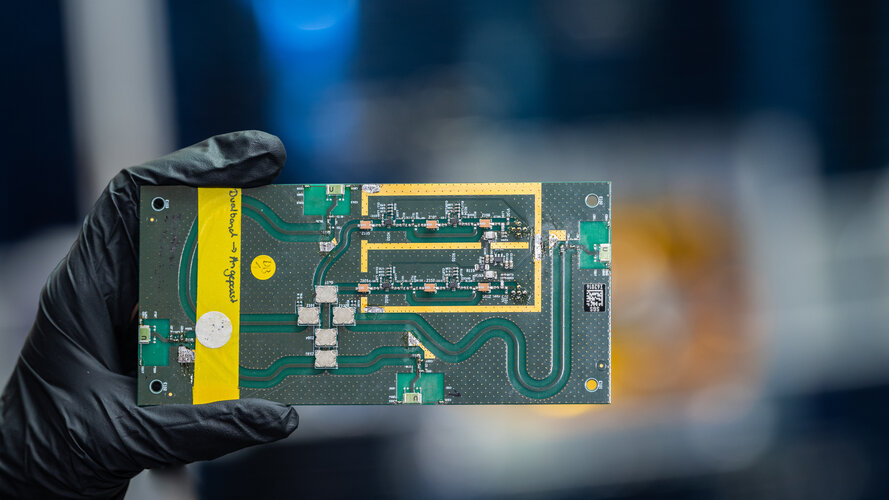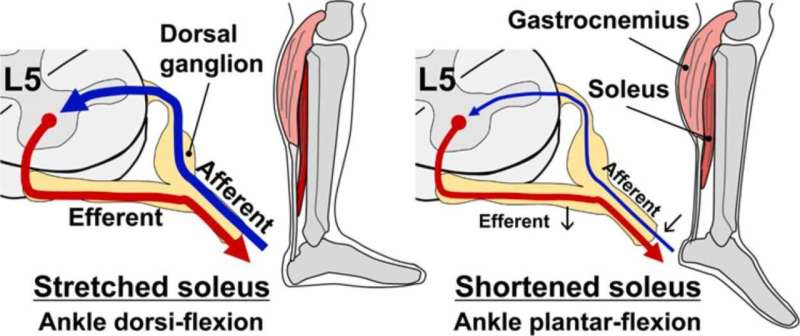
Copernical Team
Ozone depletion over North Pole produces weather anomalies
 Many people are familiar with the hole in the ozone layer over Antarctica, but what is less well known is that occasionally, the protective ozone in the stratosphere over the Arctic is destroyed as well, thinning the ozone layer there. This last happened in the spring months of 2020, and before that, in the spring of 2011.
Each time the ozone layer has been thinned out, climate researchers
Many people are familiar with the hole in the ozone layer over Antarctica, but what is less well known is that occasionally, the protective ozone in the stratosphere over the Arctic is destroyed as well, thinning the ozone layer there. This last happened in the spring months of 2020, and before that, in the spring of 2011.
Each time the ozone layer has been thinned out, climate researchers NASA Ice Scientists Take Flight from Greenland to Study Melting Arctic Ice
 Over the next two weeks, a handful of NASA scientists will be living very different lives from the rest of us: they will board a research plane in Greenland alongside laser instruments to help calibrate NASA's space-based measurements of Arctic ice.
The ice researchers and instrument scientists will board NASA's Gulfstream V jet and fly out of Thule Air Base in northwestern Greenland to he
Over the next two weeks, a handful of NASA scientists will be living very different lives from the rest of us: they will board a research plane in Greenland alongside laser instruments to help calibrate NASA's space-based measurements of Arctic ice.
The ice researchers and instrument scientists will board NASA's Gulfstream V jet and fly out of Thule Air Base in northwestern Greenland to he Researchers use quantum-inspired approach to increase lidar resolution
 Researchers have shown that a quantum-inspired technique can be used to perform lidar imaging with a much higher depth resolution than is possible with conventional approaches. Lidar, which uses laser pulses to acquire 3D information about a scene or object, is usually best suited for imaging large objects such as topographical features or built structures due to its limited depth resolution.
Researchers have shown that a quantum-inspired technique can be used to perform lidar imaging with a much higher depth resolution than is possible with conventional approaches. Lidar, which uses laser pulses to acquire 3D information about a scene or object, is usually best suited for imaging large objects such as topographical features or built structures due to its limited depth resolution. Successful startup of the LUX-ZEPLIN Dark Matter Detector at Sanford
 Deep below the Black Hills of South Dakota in the Sanford Underground Research Facility (SURF), an innovative and uniquely sensitive dark matter detector - the LUX-ZEPLIN (LZ) experiment, led by Lawrence Berkeley National Lab (Berkeley Lab) - has passed a check-out phase of startup operations and delivered first results.
The take home message from this successful startup: "We're ready and
Deep below the Black Hills of South Dakota in the Sanford Underground Research Facility (SURF), an innovative and uniquely sensitive dark matter detector - the LUX-ZEPLIN (LZ) experiment, led by Lawrence Berkeley National Lab (Berkeley Lab) - has passed a check-out phase of startup operations and delivered first results.
The take home message from this successful startup: "We're ready and Space Systems Command's Next Industry Day to Highlight Space Domain Awareness
 Space Systems Command (SSC) officials and other agencies involved in Space Domain Awareness (SDA) will meet with traditional and non-traditional space industry professionals July 28 in Colorado Springs to exchange ideas and methods to execute SDA missions at the next SSC Industry Day. To register, visit the SSC Front Door webpage.
"Strengthening partnerships with industry and having valuab
Space Systems Command (SSC) officials and other agencies involved in Space Domain Awareness (SDA) will meet with traditional and non-traditional space industry professionals July 28 in Colorado Springs to exchange ideas and methods to execute SDA missions at the next SSC Industry Day. To register, visit the SSC Front Door webpage.
"Strengthening partnerships with industry and having valuab SpaceX launches 53 Starlink satellites to orbit after Dragon docks with ISS
 SpaceX on Sunday launched 53 Starlink satellites after the company's Dragon cargo craft carrying crew supplies and scientific experiments docked with the International Space Station on Saturday.
The Starlink satellites were launched to orbit from a Falcon 9 rocket at the Space Launch Complex 40 at Cape Canaveral Space Force Station in Florida at 10:20 a.m. Sunday.
It was the 31st
SpaceX on Sunday launched 53 Starlink satellites after the company's Dragon cargo craft carrying crew supplies and scientific experiments docked with the International Space Station on Saturday.
The Starlink satellites were launched to orbit from a Falcon 9 rocket at the Space Launch Complex 40 at Cape Canaveral Space Force Station in Florida at 10:20 a.m. Sunday.
It was the 31st Quantum physics: Record entanglement of quantum memories
 A network in which data transmission is perfectly secure against hacking? If physicists have their way, this will become reality one day with the help of the quantum mechanical phenomenon known as entanglement. For entangled particles, the rule is: If you measure the state of one of the particles, then you automatically know the state of the other. It makes no difference how far away the entangl
A network in which data transmission is perfectly secure against hacking? If physicists have their way, this will become reality one day with the help of the quantum mechanical phenomenon known as entanglement. For entangled particles, the rule is: If you measure the state of one of the particles, then you automatically know the state of the other. It makes no difference how far away the entangl Sharpening satnav for smartphones

Satellite navigation has transformed the way people live and work, but because the majority of us access it via our smartphones, the actual precision of positioning that we end up with has plenty of room for improvement. ESA led a project investigating if an array antenna approach borrowed from satellite design might deliver enhanced positioning for future smartphones, tablets, drones and other mass-market devices.
SpaceX equals 2021′s launch total with current Starlink

SpaceX managed a record 31 launches in 2021, but its more-than-weekly pace in 2022 including a launch Sunday morning let it match that record less than seven months into the year.
A Falcon 9 rocket carrying 53 more of its Starlink internet satellites to orbit lifted off from Cape Canaveral Space Force Station's Space Launch Complex 40 at 10:20 a.m. Eastern Time.
This is the third time SpaceX used a first-stage booster for a record 13th time, with this booster having previously flown on Crew Dragon's first demonstration mission, the RADARSAT Constellation Mission, SXM-7 and nine Starlink missions. It's notably also been used at all three of SpaceX's launch facilities, having also taken off from Kennedy Space Center and Vandenberg Space Force Base on missions responsible for bringing nearly 600 payloads to space.
The majority of this year's launches have been in support of the growing Starlink internet constellation, which is now active in around 40 markets around the world. This marks the 17th Starlink launch of the year and 52nd Starlink launch since the first operational deployment in 2019, with more than 2,800 satellites sent to orbit.
The 570-pound satellites orbit at around 341 miles altitude.
How reduced gravity affects astronauts' muscles and nerve responses

Among the many functions performed by skeletal muscles, an important one is maintaining our posture. If it weren't for these muscles, Earth's gravitational pull may make it difficult for us to stand and walk around. The group of muscles—mostly present in our limbs, back, and neck—which are responsible for maintaining our posture and allowing us to move against the force of gravity are rightly called "anti-gravity" muscles.
But what happens to these muscles when there is no gravity (or an "unloading" of gravitational force) for them to work against? The question might sound ridiculous to some, but not to an astronaut aboard the International Space Station (ISS). In outer space, where gravity is minimal, our muscles (especially the anti-gravitational ones) are not used as much, which might result in their atrophy and changes to their structure and properties. In fact, human calf muscles are known to reduce in volume during a flight in space.




































